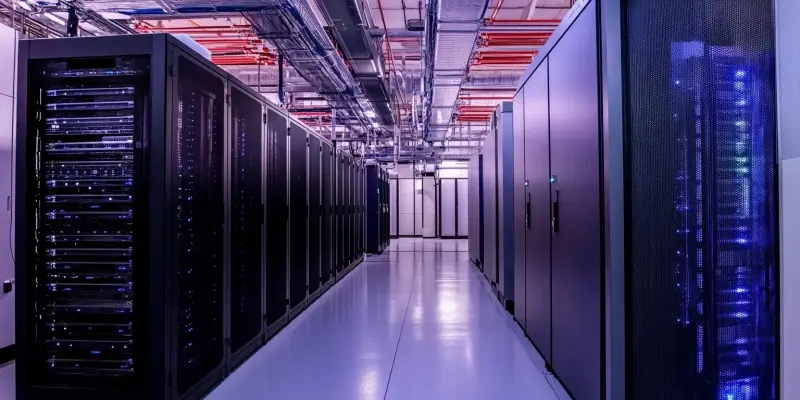Cloud Carrier, a pioneering company in the tech industry, is transforming Australia’s technology landscape with its innovative liquid-cooled data center solutions. By addressing the growing demands for modern computational tasks such as AI, large language models, machine learning, and high-performance computing (HPC), Cloud Carrier is making significant strides in developing high-density and sustainable data centers. This development is not only catering to present computational needs but also preparing for future advancements in technology.
Addressing Market Gaps with Southern Highlands Data Campus
Cloud Carrier has identified a critical market gap for supporting the most demanding computational tasks and has addressed this by developing the Southern Highlands Data Campus (SHDC). This extensive campus, covering 67 hectares with the potential to scale up to 300MW, is strategically located between Canberra and Sydney. SHDC takes advantage of its geographical benefits, including a cool climate and onsite water harvesting capabilities, to maximize water efficiency and sustainability. Moreover, its secure location ensures resilience and enhanced security for critical infrastructure, offering a robust solution for high-stakes data management needs.
At the heart of SHDC’s innovation is its customized infrastructure, designed for optimal high-density and sustainable operations. The first operational data center at this campus, named Data Building One (DB1), sets a new industry standard by integrating next-generation liquid cooling technology. DB1 marks a substantial advancement with its striking rack densities, achieving over 140kW per rack using Direct Liquid Cooling (DLC) and 160kW per tank with immersion cooling. This design achieves densities more than 17.5 and 20 times that of conventional air-cooled centers, respectively, underscoring the shift towards ultra-high-density data environments.
Cutting-Edge Technology and Future-Proofing
Matt Bigeni, the chief technology officer at Cloud Carrier, emphasizes that their data centers, including DB1, are engineered to support the latest generation of GPUs and are fully equipped to accommodate future technological advancements. This state-of-the-art design promotes energy efficiency, prioritizing sustainable practices to handle future expansions. The combination of DLC and immersion-cooled tank technologies in DB1 establishes new benchmarks in performance and environmental responsibility while maintaining high computational efficiencies.
Cloud Carrier’s unwavering focus on sustainability is an ongoing theme. Both the SHDC and DB1 are exemplary in their use of onsite water harvesting, aiming for zero utility water usage, significantly reducing emissions. Achieving power usage effectiveness (PUE) of less than 1.10, which vastly surpasses traditional data center standards, DB1 stands out. These efficiencies translate to a 74 percent increase in energy savings and a 72 percent reduction in carbon emissions. DB1 is on track to obtain an impressive NABERS rating of 5.5 to six stars, further establishing Cloud Carrier’s reputation as a leader in sustainable data center design.
Sustainability and Energy Efficiency
As Cloud Carrier continues its expansion, the focus remains on enhancing its liquid-cooled infrastructure and incorporating AI-driven services to optimize operational efficiency. Future facilities will uphold the commitment to ultra-high rack density and energy-efficient designs, providing scalable and flexible solutions that meet diverse client needs. The company aims to address modern demands consistently while actively working towards achieving future sustainability objectives.
Current trends indicate a significant increase in digitalization and growth driven by cloud and data sovereignty requirements, in addition to governmental support for sustainable initiatives within the APAC region. Cloud Carrier’s projects align with these trends, meeting the rising data demands through innovative and sustainable data center solutions. This strategic alignment with industry needs and trends further strengthens their market position and responses to client requirements effectively.
Industry Impact and Future Prospects
Cloud Carrier, an innovative company in the tech sector, is making a monumental impact on Australia’s technology landscape with its pioneering liquid-cooled data center solutions. These state-of-the-art systems efficiently address the increasing demand for modern computational tasks, including artificial intelligence, large language models, machine learning, and high-performance computing (HPC). Cloud Carrier’s advancements in developing high-density and sustainable data centers are setting new industry standards. By implementing these advanced technologies, the company is not only meeting the current needs of the tech industry but is also laying the groundwork for future technological innovations. Their focus on sustainability ensures a greener approach to managing the growing computational workloads, positioning Cloud Carrier as a forward-thinking leader. This ambitious approach is paving the way for ongoing progress in the tech world, making Cloud Carrier a pivotal player in shaping the digital future of Australia and potentially influencing global trends in data center technology.

